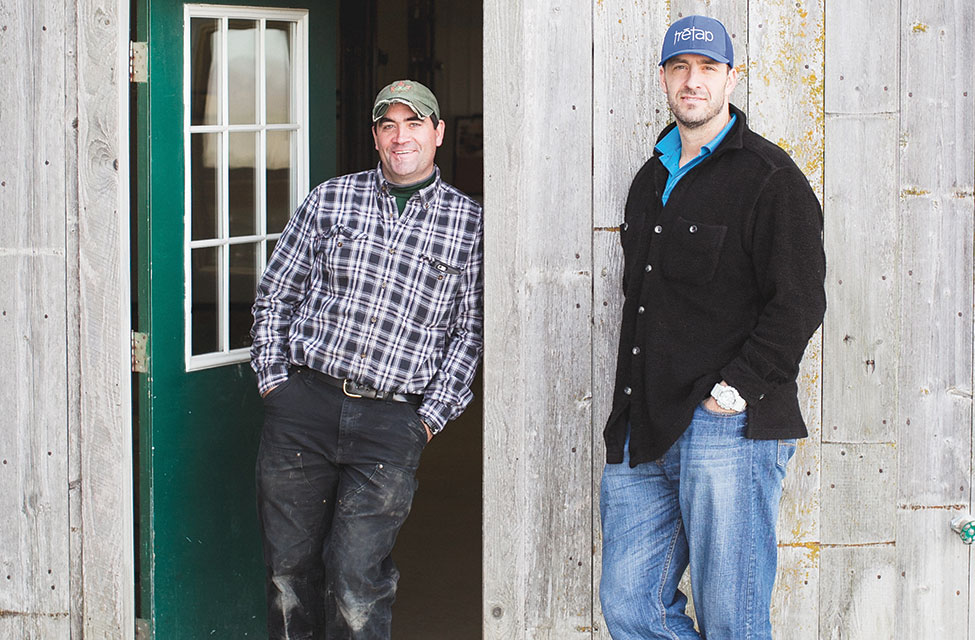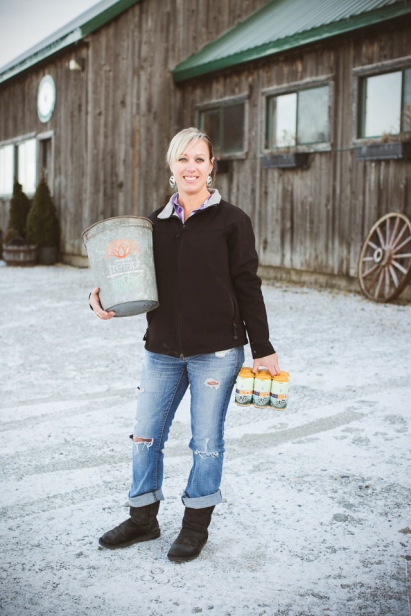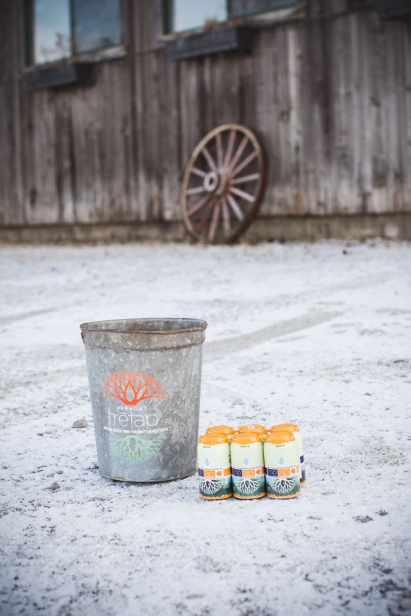Tretap
While fans of maple syrup already consider the liquid pretty magical, consumers are generally unaware that its production results in the by-product of pure water. When sap is collected in early spring, most producers (locally known as “sugar makers”) use a reverse osmosis machine that removes up to 90% of the water so the process of boiling the sap to syrup is more efficient. That means for a large producer who may get up to two million gallons of sap over a season, 1.8 million gallons of pure water are extracted from it before it goes to the evaporator.
One may presume this is a boon for sugar makers: opportunity to sell both syrup and water. The truth is, most of them do not have the time or resources to capitalize on their by-product and the majority goes down the drain. Producing maple syrup is an intense vocation. Sugar makers work around the clock for six weeks straight, focusing solely on making the best of the season for syrup. Even if they considered setting the water aside for the off-season, storage is an issue when sap tanks are at full capacity during production. There have always been rumblings among producers about taking advantage of this increasingly valuable commodity, but very few have been able to follow through with a plan of action.
Tretap is a company that has taken the steps to turn this uniquely sourced water from a by-product into a beverage that they are hoping will become an everyday kind of drink. The company was formed in 2013 by Gene Branon, owner of one of the largest maple operations in Vermont, and Aaron Harris, a Burlington-based investor in Vermont companies. Kevin and Kathy Harrison, another maple-producing family from Milton, joined in soon after. Gene Branon is a member of an extended family of seventh-generation maple producers in Fairfield and Bakersfield. Seeing the water become a wasted resource troubled him, and like most producers he contemplated ways of making use of it. He met Harris through associates in the food industry, and together they agreed that there was great potential in turning the by-product into a beverage. Coconut water was having its day, so maple water seemed very plausible.
Harris is a Vermont native, originally from Middlebury, who has worked in venture capital from New York to Asia. He returned home to the state to raise his family and had been looking for interesting Vermont start-ups. Tretap appealed to him for its use of local resources and its potential to be a regional hit. From the start, his role has been research and marketing. He wanted to target the consumer who shops at Whole Foods, co-ops and Trader Joe’s, people who are interested in buying healthy and knowing the source of their food. The drink was to be a low-calorie, low-sugar flavored water that would appeal to both kids and adults.
Harris hopes consumers will view Tretap as an all-occasions drink, like reaching for a San Pellegrino. “Other products out there in the maple industry are for sampling and drinking infrequently. We want to offer something that is a regular buy.”
For more information visit Tretap.com.
Laura Sorkin is now one of those moms who pops open a Tretap in the front seat and hands it to her kids in the back. Blueberry seems to be the backseat favorite.






